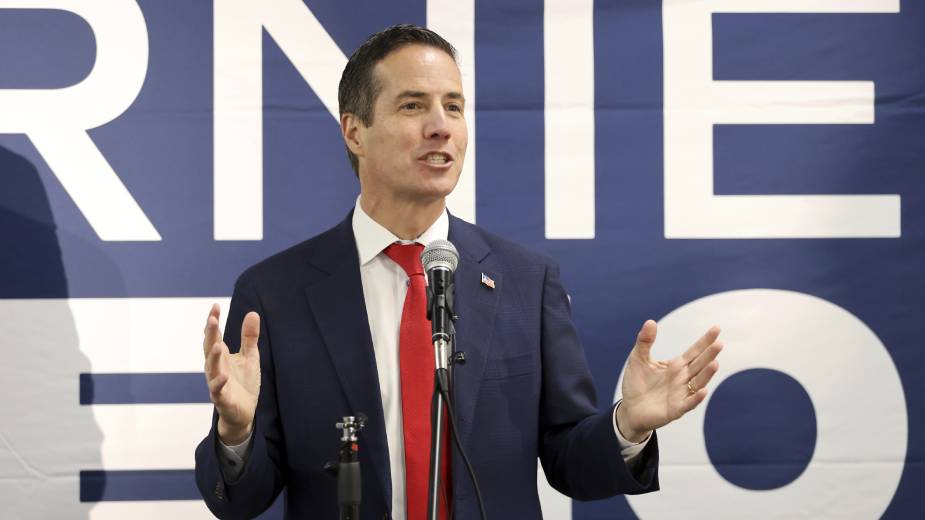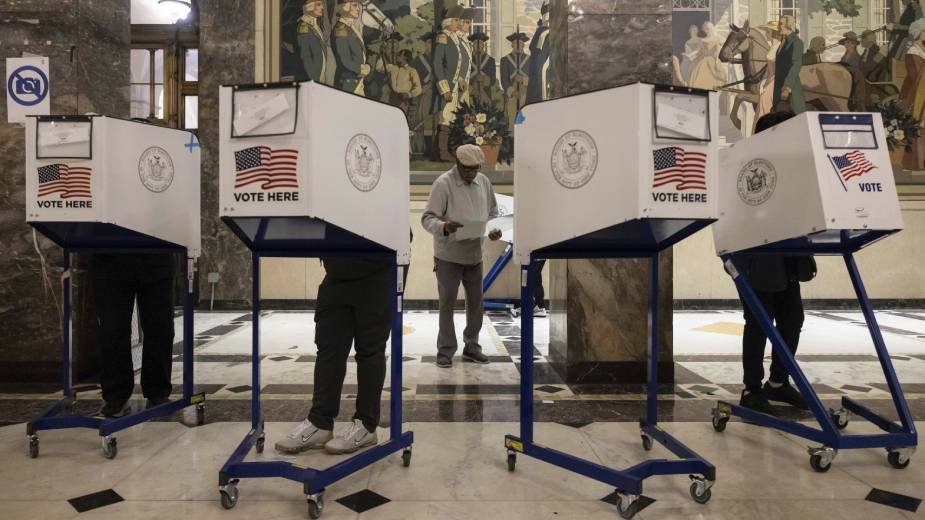DeWine Decries Legalizing Pot, Endorses Kasich
WARREN, Ohio – One of the most publicized measures on the ballot this November is the Marijuana Legalization Initiative that would allow voters to decide whether recreational use of the drug should be allowed in Ohio.
But another measure – the Ohio Initiated Monopolies Amendment Issue 2 – seeks to invalidate the marijuana initiative should it pass because 10 sites throughout the state would handle growth and distribution of marijuana – in effect a cartel – claims Citizens Against ResponsibleOhio, the group backing the initiative.
Ohio Attorney General Mike DeWine, speaking at the Youngstown-Warren Regional Chamber’s Government Affairs Council luncheon Thursday, said that should voters approve both, only one thing is certain, a courtroom battle.
“Both of them could conceivably pass. I can’t tell what would happen after that,” DeWine said. “There’s an argument that [the one with the higher vote count would prevail]. But we don’t know. The one thing I know is that it will be in court if they both pass.”
DeWine took a firm stand against the marijuana initiative during the question-and-answer session.
“The way it’ll be done is not a very good idea,” he began. “This ballot initiative designates 10 very specific spots in Ohio where marijuana can be grown. Ten groups put up $2 million each. The 10 places are owned by these 10 groups. It’s a pretty sweet deal. They put the money up, get you to vote for it and then sit back and reap the money.”
He also cited issues that have arisen in Colorado, the first state to legalize the Schedule I drug for recreational use, including increased numbers of DUIs related to pot use, more children going to the hospital after ingesting marijuana and a drop in the age when children first try pot.
“If you think recreational marijuana in Ohio is a dandy idea after all of that, then OK,” he said.
Addressing the widespread abuse of heroin throughout the state, DeWine noted that it would take more than arrests to reduce the scope of the problem.
“We won’t arrest our way out of this problem. We’ll do what we need to do, but the governor won’t solve it. The attorney general won’t solve it. The president won’t solve it,” he said. “The places that have fought back and made progress have been communities where there’s a grassroots effort that’s sprung up from moms and dads who’ve lost kids.”
In some places, heroin can be bought for as little as $15. That may not seem like much, the attorney general said, but asserted that abusers can often spend as much as $1,500 for a fix.
Because of the low cost and availability of the drug – “I don’t think they’d deliver to this restaurant, but they might,” DeWine said – there is no single group that escapes at least some level of abuse. A low-income abuser is just as likely to exist as a high-income addict and it’s just as likely to happen in small towns as big cities.
Switching subjects, DeWine said the backlog of rape kits collected from police departments statewide is being tested by the state’s crime lab. When a letter was sent to all departments, he only expected a few hundred, at most, he said. Instead 10,600 kits, some stored from the 1990s, were sent in.
“These are cold, cold cases. I was shocked at what’s happened. Of the more than 10,000, we’ve tested 8,100,” he reported. “We’re consistently, week after week, getting matches on 37%. We’re going back to police departments and telling them to get out the old files because we have the rapist.”
Cleveland was the largest respondent to the retrieve the old kits, turning in 4,400, DeWine said.
With the effort, Ohio is on track to be the first state to clear its backlog and test all of its rape kits.
“We owe it to the public,” DeWine said. “The bad news is, we should have done this before.”
The attorney general’s office has also worked with businesses, he said, since he took office 4½ years ago. He entered wanting to change the culture of his department. One example he offered was the crime lab. When evidence arrived there, there were 187 steps between first contact and when staff returned that evidence to police departments.
To improve efficiency, Cintas, the Cincinnati-based uniform company, was brought to examine the process.
“What do they know about solving crimes? Probably nothing. But they know about production. Those of you that run a business know about efficiency,” DeWine explained.
The result was a reduction to 80 steps at the lab for receipt, analysis and return of evidence, DeWine said.
As he wrapped up the Q&A, DeWine, a Republican, endorsed John R. Kasich’s bid to be the Republican Party’s nominee for president, saying, “The governor’s done very well. He did well in the debate [hosted by the Fox network in Cleveland Aug. 6].”
Pictured: Ohio Attorney General Mike DeWine addresses members of the Youngstown Warren Regional Chamber Governmental Affairs Committee.
Copyright 2024 The Business Journal, Youngstown, Ohio.



